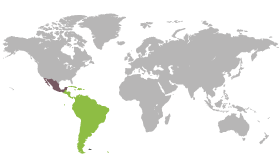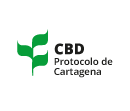 Overview
Overview


Area km2: 1,972,550
Population: 126,014,024
Capital: Mexico City
ISO 3166: MX

Population density:
63.9 hab/km2

National flower:
Dhalia (Dahlia sp.)
Mexico has a significant agricultural activity and, also, is the place of origin and genetic diversity of more than a hundred products among which - due to their worldwide crucial importance - maize, papaya, tomato, vanilla, tobacco, cotton and beans, stand out. During the last years, Mexico has ranked among the top exporters of primary products such as avocado, tomato, chili pepper, lemon, berries, chicken, eggs and beef, but also of value-added products such as beer and tequila. Mexico's success in the export of agricultural products is explained, to a great extent, by the specialization pursued by its farmers, particularly after the implementation of the North American Free Trade Agreement (now USMCA) of which Mexico is a Party. On the other hand, to supply its domestic demand for cereal grains and oilseed crops, Mexico imports maize, wheat and soybean byproducts.






 Trade
Trade Are there local developments?
Are there local developments?












